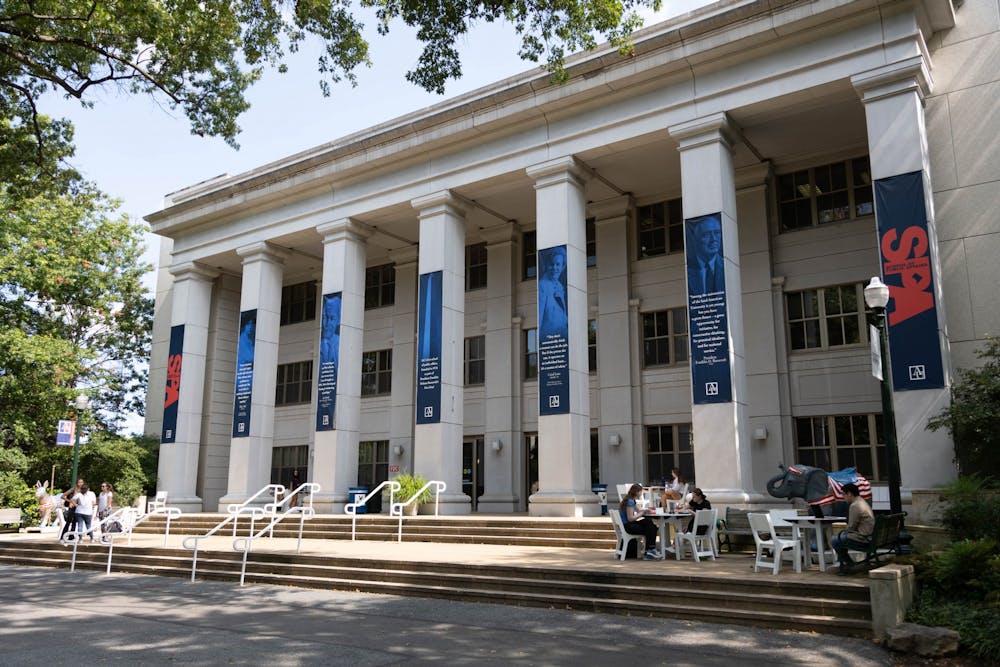American University’s Women’s Initiative hosted a discussion on March 15 with author Michelle Alexander over Zoom in honor of Women’s History Month.
Alexander is a civil rights lawyer, legal scholar, advocate and author of “The New Jim Crow: Mass Incarceration in the Age of Colorblindness.”
Rory Hayes, the creative director of WI, moderated the event, which focused on Alexander’s book and views on issues dealing with racism at a systemic level.
According to Alexander, her book was inspired by a man she encountered while she worked at the American Civil Liberties Union in California working on a campaign to end racial profiling who became her inspiration for writing the book.
Alexander recounted her interaction with the man, who had hidden his felony drug charges from her when seeking legal representation.
“The minute he told me he was a felon, I just stopped listening,” Alexander said. “I couldn’t even hear what he had to say.”
This, Alexander explained, was what began her period of thorough research and listening to the different stories that cycled in prisons. The process she went through was what inspired Alexander to write her book “to help others see what they had been blind to.”
“People like me were on the wrong side of justice,” Alexander said.
The talk also addressed neoliberalism and the role it plays in mass incarceration. Alexander argued that neoliberalism helped structure the form of mass incarceration and how the response has been made.
“It’s not just about who’s behind bars; it’s about who’s under correctional control,” Alexander said.
Hayes then asked about the process that Alexander’s book took until its publication and the public opinion it gathered.
Alexander talked about the process her book went through before its publication and the public opinions that gathered around it. The struggles she faced while deciding on pushing forward with her book caused her internal conflict, but she eventually came to terms with what she knew she wanted to write about.
“I just realized: actually, I need to say this, I need to write this. If it’s not safe to write here, if it’s not valued to write here, then I have to leave,” Alexander said about her time working at Stanford University’s law school.
According to Alexander, her colleagues discouraged her from publishing a book on a radical topic before she reached tenure. She discussed her difficulties in finding a publisher that was willing to support her book, and the lack of conversation surrounding her ideas for two years after publication.
“It took a couple of years of speaking to half-empty church basements, trying to talk to anybody who would listen, before the message finally broke through,” Alexander said.
Alexander mentioned another book that is a work-in-progress that she described as a more personal take on her beliefs.
“I do think that it’s possible for us to create a radically different world, different nation from the one we live in today,” Alexander said.





